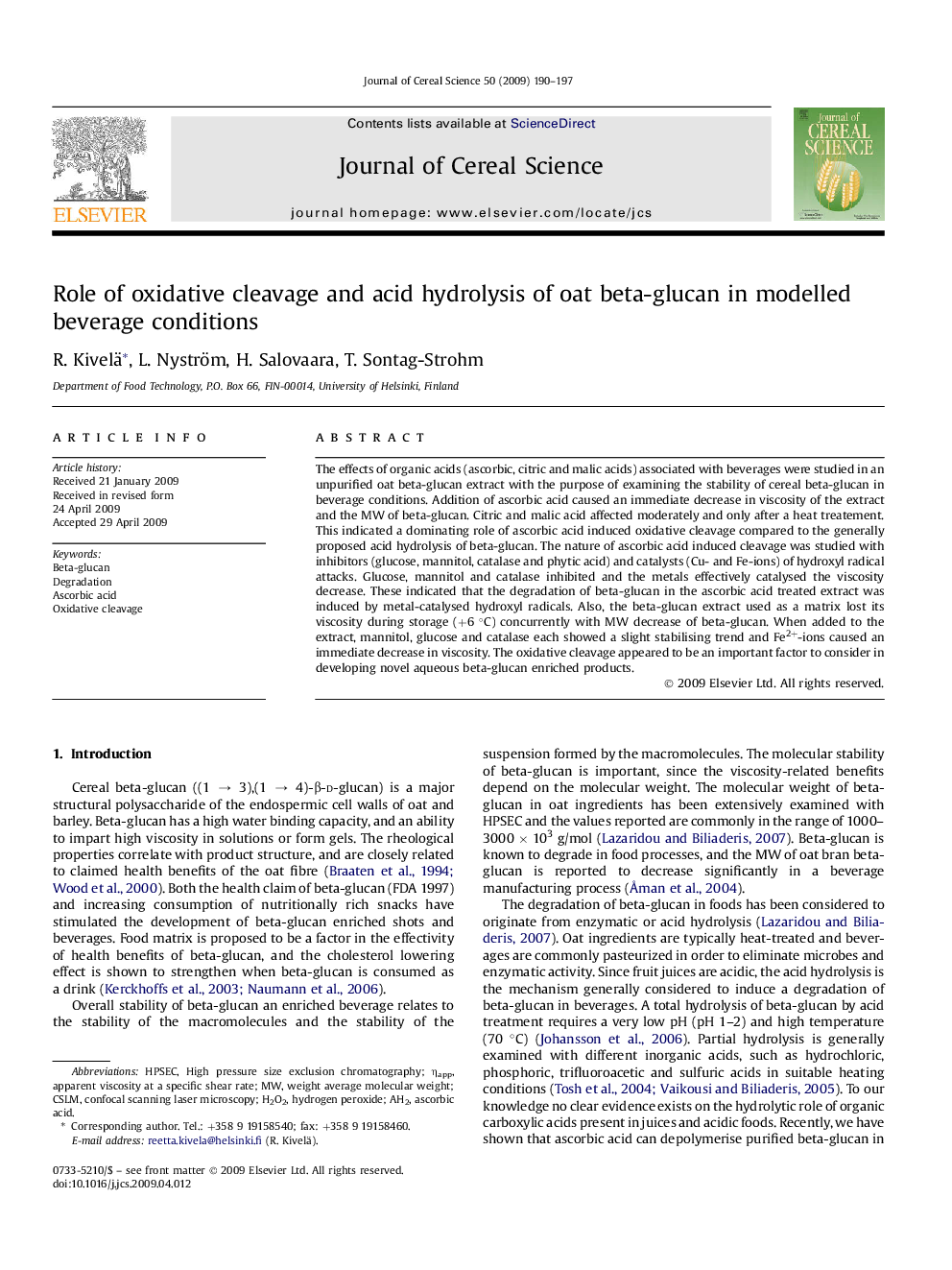| Article ID | Journal | Published Year | Pages | File Type |
|---|---|---|---|---|
| 4516483 | Journal of Cereal Science | 2009 | 8 Pages |
The effects of organic acids (ascorbic, citric and malic acids) associated with beverages were studied in an unpurified oat beta-glucan extract with the purpose of examining the stability of cereal beta-glucan in beverage conditions. Addition of ascorbic acid caused an immediate decrease in viscosity of the extract and the MW of beta-glucan. Citric and malic acid affected moderately and only after a heat treatement. This indicated a dominating role of ascorbic acid induced oxidative cleavage compared to the generally proposed acid hydrolysis of beta-glucan. The nature of ascorbic acid induced cleavage was studied with inhibitors (glucose, mannitol, catalase and phytic acid) and catalysts (Cu- and Fe-ions) of hydroxyl radical attacks. Glucose, mannitol and catalase inhibited and the metals effectively catalysed the viscosity decrease. These indicated that the degradation of beta-glucan in the ascorbic acid treated extract was induced by metal-catalysed hydroxyl radicals. Also, the beta-glucan extract used as a matrix lost its viscosity during storage (+6 °C) concurrently with MW decrease of beta-glucan. When added to the extract, mannitol, glucose and catalase each showed a slight stabilising trend and Fe2+-ions caused an immediate decrease in viscosity. The oxidative cleavage appeared to be an important factor to consider in developing novel aqueous beta-glucan enriched products.
